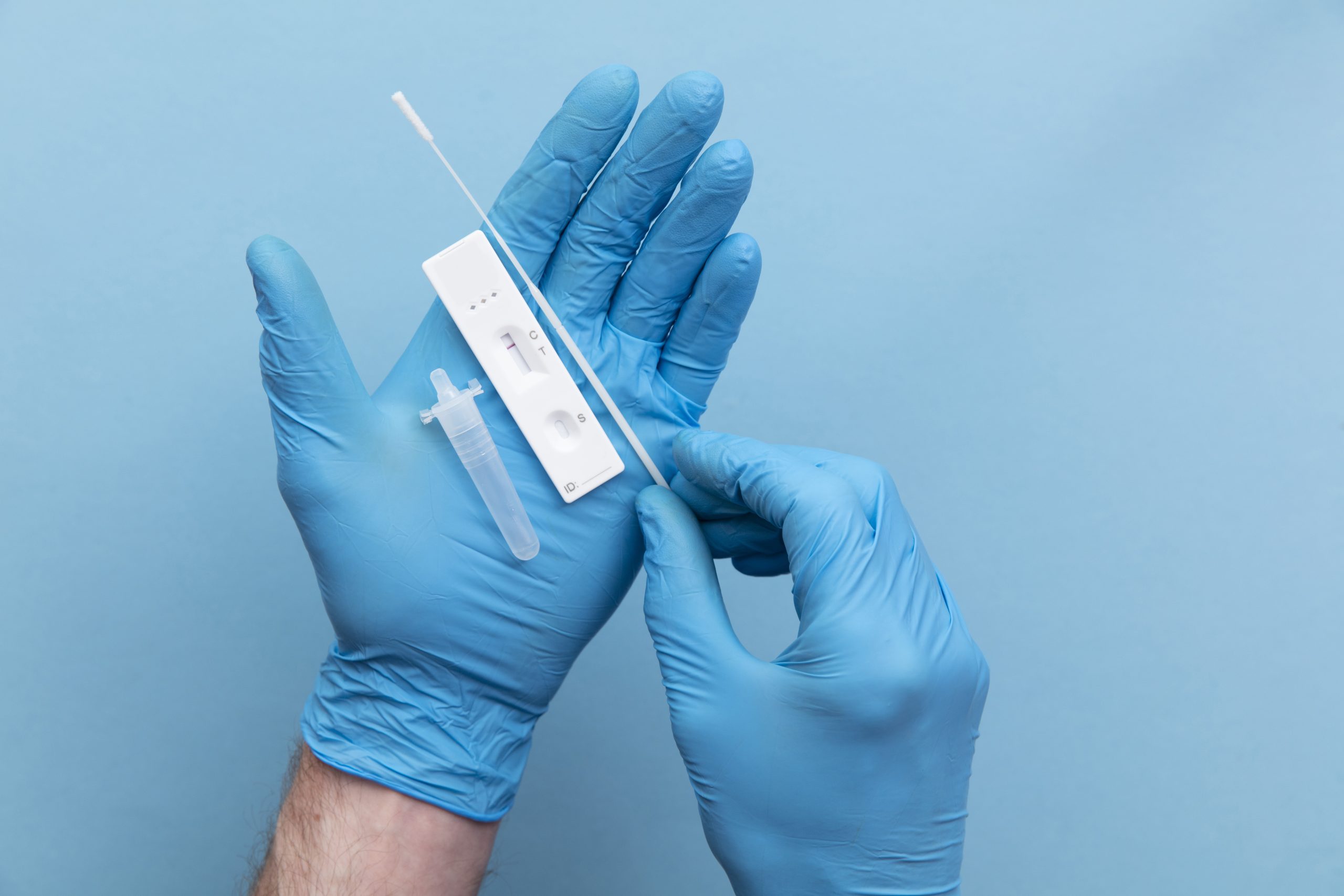Covid & Flu Testing
COVID-19 Testing:
COVID-19 testing is a diagnostic procedure used to detect the presence of the SARS-CoV-2 virus, which causes COVID-19. Here's an overview of COVID-19 testing:
Indications: COVID-19 testing is conducted when individuals have symptoms consistent with COVID-19, such as fever, cough, shortness of breath, loss of taste or smell, or when they have been exposed to someone with a confirmed COVID-19 infection. Testing may also be part of public health surveillance efforts.
Types of Tests: There are several types of COVID-19 tests:
- Molecular Tests: These include RT-PCR and NAATs and are considered the gold standard for COVID-19 testing. They detect the genetic material of the virus and provide accurate results.
- Antigen Tests: Rapid antigen tests detect specific viral proteins. They provide quicker results but are less sensitive than molecular tests. This test can be performed in our clinic.
- Antibody Tests: These tests detect antibodies produced by the immune system in response to a past COVID-19 infection. They are not used for diagnosing current infections but can indicate past exposure.
Sample Collection: COVID-19 samples are typically collected via nasopharyngeal or throat swabs. Some tests may use saliva samples.
Testing Process: The collected sample is processed in a laboratory or point-of-care setting. Molecular tests are highly sensitive and specific, providing results within a few hours to a few days. Rapid antigen testing done in our clinic will offer results within 15-30 minutes but may have lower sensitivity.
Interpretation: A positive COVID-19 test result indicates an active infection with SARS-CoV-2, while a negative result suggests that the virus was not detected. False negatives are possible, especially with rapid antigen tests. Antibody tests indicate past exposure but cannot confirm an active infection.
It's important to note that testing guidelines and availability may vary by location and may change over time, particularly in response to the evolving nature of the COVID-19 pandemic. Testing should be performed by healthcare professionals following proper protocols to ensure accurate results and minimize the risk of transmission. Individuals with symptoms or known exposures to COVID-19 should consult with healthcare providers for guidance on testing and appropriate follow-up measures.
Flu Testing:
Flu testing, also known as influenza testing, is a diagnostic procedure used to identify the presence of the influenza virus in a patient's respiratory system. Here's an overview of flu testing:
Indications: Flu testing is typically conducted when a person exhibits symptoms of influenza, which may include fever, cough, sore throat, body aches, fatigue, and respiratory symptoms. It is especially important during flu seasons to differentiate between the flu and other respiratory illnesses.
Types of Tests: There are two primary types of flu tests:
- Molecular Tests: These tests, such as reverse transcription-polymerase chain reaction (RT-PCR) or nucleic acid amplification tests (NAATs), are highly accurate and can detect the genetic material of the influenza virus. They are often performed in a laboratory setting.
- Rapid Antigen Tests: These tests are quicker but less sensitive than molecular tests. They detect specific proteins (antigens) on the surface of the flu virus. This test can be performed in our clinic which will provide results within minutes.
Sample Collection: A respiratory sample, usually obtained via a nasal or throat swab, is collected from the patient for testing.
Testing Process: The collected sample is processed and analyzed for the presence of the influenza virus. Results are typically available within a few hours for molecular tests and within 15-30 minutes for rapid antigen tests.
Interpretation: A positive test result indicates that the patient is infected with the influenza virus, while a negative result suggests that the virus is not present.
*False-negative results are possible, especially with rapid antigen tests.
Click to learn about more services:











